Tactile


'You cannot work on the philosophy of biology or physics without detailed knowledge of those sciences. A philosophy of the special sciences approach to perception also requires detailed knowledge of the relevant psychology. The thing is, though, psychology is an indeterministic science, and many self-proclaimed naturalists in the philosophy of mind are statistical illiterates. Without an understanding of the relevant statistical evidence, confirmation bias is a real risk.'

3:16: What made you become a philosopher?
Mark Kalderon: I suppose, in a way, it is connected with my love of reading. I have read as long as I can remember. My mother tells me that when I was three I demanded that she teach me to read. Apparently I was frustrated that she could not always read to me, and I must have reasoned that if she taught me to read, I could simply read for myself. I read voraciously and soon exhausted the available age appropriate material. As I grew up, there were many books at home. My father was a pathologist and academic who emigrated from Turkey largely out of a concern about rising anti-semitism. So the books at home were mainly medical texts and histories of the Ottoman empire and the Sephardi diaspora. Thus I became accustomed to reading texts that I did not, at first, fully understand. I read a lot of literature and became interested in religious texts. My first encounter with a philosophical text was when I was fourteen. I was in the library of Catholic High School for Boys in Little Rock, Arkansas, just beginning the process of systematically reading its contents, when I encountered Kant's Groundwork. I confess I did not understand it, but I can still recall the vivid sense that I had that this was something important and worth the effort to come to understand. There was not much philosophy in that library. Fortunately, my father would take me to the university library on the weekends where he would research and set me loose in the stacks.
Since I have linked my desire to become a philosopher with my literary interests, it is, perhaps, worth drawing attention to competing conceptions of philosophical activity. For some, the paradigm of doing philosophy is having a conversation. For others, it is the production and consumption of philosophical texts. My friend and former colleague, Mike Martin, belongs to the former camp, and I to the latter. Strangely both have their roots in Plato. The dialogues are, well, dialogues, conversations. But, of course, Plato wrote these dialogues which are rightly considered masterpieces of Western literature. So Plato embodies, within his work both competing conceptions of philosophical activity.
3:16: You’ve written extensively about perception and colour and about fiction. Let's start with colour and perception. You think that perception has an irreducible presentational element. Many think that because of this there’s nothing to be gained from exploring the metaphysics of sensory presentation. You disagree but before turning to your approach, what are the reasons people have for dismissing metaphysics in this area of thinking?
MK: In the General Theory of Employment, Interest and Money Keynes wrote: "Practical men, who believe themselves to be quite exempt from any intellectual influence, are usually the slaves of some defunct economist." In the same vein I would suggest that philosophers or practical people, who believe themselves to be quite exempt from any metaphysical influence, are usually the slaves of some defunct metaphysics. Whenever a psychologist claims that colors are just biological representations, I think "The seventeenth century called, and they want their metaphysics back!''. Nothing in the science establishes that. Only the science in conjunction with unspoken metaphysical assumptions would encourage that thought. (John Campbell has useful discussion of this point.) We should all strive to critically reflect on the metaphysical assumptions we bring to bear on the philosophical questions we address---even in areas seemingly far removed from metaphysics. An ethicist may make unspoken assumptions about the metaphysics of agency, for example.
3:16: So why do you think there are still things to learn from looking at metaphysics, and why don’t you limit yourself to the orthodox tools of contemporary analytic metaphysics? Is it that you are dissatisfied with an approach that is still largely working within a seventeenth century paradigm?
MK: Yes, that is exactly right. If I may switch from Kuhn's vocabulary to Lakatos' (not unrelated since Lakatos was trying to reconcile Popper's insights with Kuhn's), I believe that many philosophers of mind are engaged in a degenerative research program. The so-called Hard Problem of Consciousness is a symptom of this. To get a sense of this, consider a take on that problem independently arrived at by myself, Alex Byrne, and Sydney Shoemaker. Begin with the metaphysics of sensible qualities, specifically the Problem of the Manifest. Suppose you thought that the world that we experience is material. For the sake of vividness, suppose that it is composed of colorless atoms spinning in the void. You might be puzzled, then, about how these give rise to the qualities that we experience. This is a familiar instance of the Problem of the Manifest (compare Eddington's table discussed in his Gifford Lecture). If, in addition, you thought that the subject that experiences these qualities is itself immaterial, a strategy is now open to you for resolving the Problem of the Manifest.
3:16: What do you say to a contemporary naturalist metaphysician who derides your approach as a priori armchair philosophising of the worst kind?
MK: To my face? I doubt you could print my reply. I don't even own an armchair! More seriously, several observations are in order. First, neither I nor such a critic accept the Kantian epistemological categories. Second, I have drawn on the work of art historians, medical historians, historians of science, archaeologists, classicists, psychologists, linguists, and many more. That hardly seems a priori. Third, such criticism needs to be backed by reasons. If not, it is just bullying rhetoric that obscures more than it illuminates. Finally, in the Millian marketplace of ideas, we should judge views by the fruits they bear. If such a naturalist either has no adequate solution to the Hard Problem of Consciousness, or merely seeks to evade it by counseling eliminativism, then, in my opinion at least, they are not faring well in that marketplace. Again, at least in the philosophy of mind, they are engaged in a degenerative research program.
There is a legitimate approach to philosophy of perception, call it the philosophy of special sciences approach. The approach is on the model of philosophy of biology or philosophy of physics but focussed, instead, on the perceptual sciences. This is a minority approach that can be found in the work of Gary Hatfield, Justin Broackes, and David Hilbert (at least when not writing with Alex Byrne). You cannot work on the philosophy of biology or physics without detailed knowledge of those sciences. A philosophy of the special sciences approach to perception also requires detailed knowledge of the relevant psychology. The thing is, though, psychology is an indeterministic science, and many self-proclaimed naturalists in the philosophy of mind are statistical illiterates. Without an understanding of the relevant statistical evidence, confirmation bias is a real risk. This has been exacerbated by the fact that senior figures in the philosophy of mind, such as Tyler Burge and Jerry Fodor, show no sign of appreciating the indeterministic character of psychology, no doubt under the influence of the Hempelian philosophy of science they learned in graduate school. So while I think that the philosophy of the special sciences approach is a legitimate and fruitful way to understand perception, most naturalists are incapable of it, and it is not the only way to proceed.
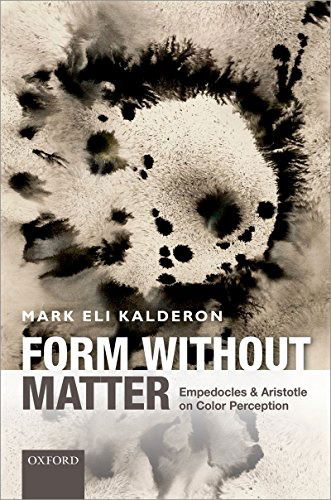
3:16: If you’re not reducing perception generally to sensation by contact, why do you still think that tactile metaphors – and in particular ‘grasping’ - are still apt in this domain?
MK: I have grappled with this question both in Form without Matter, Empedocles and Aristotle on Color Perception and more directly in Sympathy in Perception. To be honest, I am still grappling with the question, or, at least, I still have more to say about it that I shall address in future work.
But first notice just how widespread the metaphor is. Contemporary philosophers will say that perception puts us into contact with the natural environment. What does this mean? My curiosity was first piqued as an undergraduate. I quickly came to realize that I could not come to understand this simply be examining tactile metaphors deployed by contemporary philosophers. These metaphors are lifeless in their hands, and will be deployed even when they are in tension with the philosopher's considered views. Why do they grip us so?
Philosophers literally cannot help themselves deploying tactile metaphors. Mostly this is unconscious, but not always. In a remarkable passage, Brian O'Shaughnessy warns against taking talk of perceptual contact too seriously, but then deploys the tactile metaphor in describing the contrasting conception! One explanation for the persistence of these metaphors, even when they are inconsistent with espoused philosophical doctrines and even in the face of explicit disavowal, is that they are somehow primitively compelling. But what could this amount to if not their intuitive aptness? Exactly why they are apt, however, is the $64,000 question.
3:16: Can you say why you think phenomenological investigation into haptic experience to uncover this aptness should take the form of conceptual genealogy? (And it may be useful to quickly spell out what you take phenomenology, haptic and genealogy are in this context!)
MK: By phenomenology I mean, roughly, the content, character, and structure of experience as revealed from within that experience. Something like this is what the Nagelian slogan---what it is like for a subject to undergo an experience---was meant to capture. My thought was that the tactile imagery used in describing even non-tactile modes of perception was apt since it captured something important about the phenomenology of perceptual experience.
A variety of tactile metaphors are deployed. We are really talking about a semantic field here. At the center of the semantic field is a mode of haptic perception, grasping. Haptic perception is a form of touch that involves the active exploration of the tangible object. Grasping involves conforming one's hands to the contours of the object grasped in such a way as to perceive its overall shape and volume. The haptic character of the metaphor at the center of the semantic field turned out to be an important clue as to the active character of perception.
As for conceptual genealogy, well, there was really no point at all in reflecting on the dead metaphors of contemporary philosophers of mind, they are lifeless in their hands. It was much better to reflect on earlier occurrence when they were "more strongly etched in light and shadow" as Nietzsche says. Conceptual genealogy is really just the attempt to glean phenomenological insights from historical descriptions of perceptual experience in tactile terms.
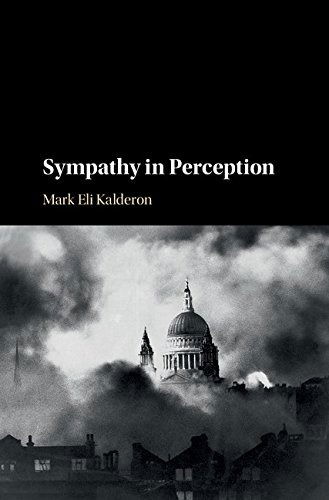
3:16: For Empedocles, grasping wasn’t a metaphor was it? Colour perception is literally a type of ingestion isn’t it? So how do you understand what’s happening with these early manifestations of what now seems metaphorical? I think you call your approach ‘conceptual genealogy’ don’t you? Can you say something about this?
MK: Yes, the earliest occurrence of tactile imagery is literal, crude, and for that very reason more profound. What is really useful is one can see more clearly why such thinkers appealed to tactile imagery, one can understand the kind of problems they were grappling with when they came up with such descriptions. Such problems might also be our own, even if there solution won't be our own.
As to conceptual genealogy, you might think of it as philosophical ethnography as a form of phenomenology. Suppose you decide to interpret and comment on a late antique treatise on the soul. It is still a product of an alien philosophical culture. So you are going to have to bracket your presuppositions if you are going to sympathetically and imaginatively interpret that text. So how are you going to go about sympathetically and imaginatively interpreting it? Well, you look the phenomena, as you understand it to be, and ask ``What is it about it that is prompting these people to describe it in the way that they are?'' So in a way, it is using the text as a guide to attending to the phenomena. That it involves the interpretation of texts from alien philosophical cultures is what makes it a form of ethnography. And that it is a means of bracketing philosophical presuppositions so that one may clear headedly attend to the phenomena is what makes it a form of phenomenology.
3:16: And why approach things this way – as you say, this is very different to an approach (say of Burnyeat and Williams) that supposes that the historical context in which Aristotle, Empedocles et al worked no longer obtains and so their philosophy of mind is no longer credible? Is it at least partly because you agree with Putnam who thinks modern philosophy of mind a disaster and Aristotle’s approach actually superior to the modern one?
MK: Almost. What is admirable about Williams and Burnyeat is their willingness to confront the alien, and their refusal to whitewash over fundamental difference. However, Burnyeat's conviction that Aristotle's philosophy of mind is no longer credible is due, in no small part, to his continued adherence to elements of the early modern paradigm that I find problematic. I initially hedged only because I don't think that we can simply roll back philosophical thinking to classical antiquity. But consistent with that, there may be problems and ideas to be found in ancient thinkers such as Aristotle that may be useful going forward and whose utility has been obscured by early modern rhetoric concerning our premodern predecessors.
3:16: How do you push back against the charge that your approach is largely invention and/or anachronistic?
MK: Hopefully the straight historiography that I have written is not anachronistic! You might ask Victor Caston about that. But I take it you have in mind not the historiography so much as the nefarious use to which I have put it in my own theorizing. Well, in a way it is invention and anachronistic, but that is no objection. Suppose you think that progress in an area requires a paradigm shift. What is required then are novel concepts. Only in the stage of normal science are there a fixed stock of stable concepts that only must be applied given the appropriate methodologies. If that paradigm runs aground, then you can't simply continue with these fixed stock of concepts. Applying ancient or scholastic concepts to contemporary problems is anachronistic if you take this as revealing something about what they ancients or scholastics thought or would think. But applying such concepts to new problems is a kind of concept-formation. Think of Bergson's retrofitting the concepts from Stoic physics in developing his philosophical psychology in Matter and Memory. Deleuze's use of history is similar (see Adrian Moore's discussion of Deleuze in The Evolution of Modern Metaphysics). And novel concepts are what are required if one wants to contribute to, if not indeed effect, a paradigm shift.
3:16: You’re doing historically informed speculative metaphysics aren’t you – so how do you go about answering the metaphysical question’ What is it for the object of perception to be present in the perceiver’s experience of it?’
MK: Perhaps this is easiest to see in the special case of haptic perception.
Grasping, understood as a mode of haptic perception, is the joint upshot of forces in conflict. On the one hand, there is the force exerted in molding the hand more precisely to the contours of the rigid, solid, body. On the other hand, there are the self-maintaining forces of the rigid, solid, body itself. In resisting the force of the hand's activity, the self-maintaining forces that constitutes the body's rigidity and solidity present these qualities in haptic awareness. In resisting the hand's encroachment, the hand, and the haptic experience that it gives rise to, formally assimilates to the overall shape and volume of the object grasped. The conscious qualitative character of that experience depends upon and derives from the qualitative character of the tangible object, relative to the perceiver's handling of it.
Sympathy was originally not an emotional response to another so much as an explanatory principle, originally posited to explain action at a distance (for a useful history of the concept see Sympathy, A History edited by Eric Schliesser). You can see this in the etymology, it derives from the Greek where it meant something like to be affected (pathē) along with (sym). Sympathy played an important role in Stoic and Neoplatonic physics. As developed by Plotinus, a case of formal assimilation is governed by the principle of sympathy when and only when one part of a unified manifold formally assimilates to a potentially noncontinguous part of the manifold because the parts, disposed as the are, are united in the manifold, in the way that they are.
But now notice how our description of grasping as a mode of haptic perception fits this model. Grasping, understood as mode of haptic perception, is a unified manifold where one part of the manifold, the perceiver's hand and the haptic experience it gives rise to, formally assimilates to another part of the manifold, the object grasped, and does so because the parts, disposed as they are, the hand's power of of haptic activity and the object's self-maintaining forces, are united in the manifold in the way that they are, in the hand's active grasp, the joint upshot of the hand's activity and the object's self-maintaining forces. If that is right, then sympathy, at least as understood by Plotinus, is the principle governing haptic presentation. This model was used to resolve an apparent puzzle about haptic presentation and Sympathy in Perception works hard to extend this model to audition and vision.
3:16: How does Heidegger help in this approach – and does that mean that this is continental rather than analytical metaphysics in some sense?
MK: I am open to continental philosophy. Perhaps surprisingly, for someone trained in analytic philosophy, I have a fondness for the Soixante Huitards who can be seen as thinking hard for themselves about fundamental matters (though I am perhaps less keen on some of their Anglophone enthusiasts). With respect to Heidegger, an influence on many of these thinkers, I confess to there being obstacles to fully appreciating what he has to offer. Specifically, there are personal, doctrinal, and methodological obstacles facing my engagement with his work.
The personal obstacle concerns his radical Protestantism. After completing his dissertation under Husserl on psychologism and his habilitation on Duns Scotus, Heidegger studied the works of Calvin and Luther. Even without this biographical background, for those sensitive to such things, this influence is manifest in Being and Time. Think of the talk of ``thrownness'', ``fallenness'', ``being-unto-death'' and so on. Clearly, moments of the Lapsarian myth, filtered through radical Protestantism, have been elevated into ontological categories. (Indeed, this is so obvious that it was clear to me as a high school student in Little Rock, Arkansas.) The thing is I have a visceral negative reaction to the Lapsarian myth, regarding it, with Porphyry, as beneath the dignity of humanity. I am not alone in this, Max Scheler had a markedly similar reaction to Heidegger's work.
The doctrinal obstacle concerns the lingering effects of transcendental philosophy. It is true, Heidegger struggles mightily to root out this element in his thinking, but his efforts are incomplete and unsuccessful. Or at least so it seems to someone like myself steeped in the Oxford Realism of Cook Wilson and Pritchard (who were also concerned to root out the transcendental thinking in their own tradition).
The methodological obstacles concerns a difference in our approach to the interpretation of texts. Alexander Mourelatos, in his book The Route of Parmenides, contrasts Heidegger's hermeneutics with Austin's ``trails of etymology''. Like Mourelatos, my interpretative approach is more in line with Austinian ``trails of etymology'' than with Heideggerian hermeneutics.
Despite these obstacles, Heidegger is, nevertheless, useful for me to think about given my interest in the metaphysics of sensory presentation. Heidegger is very skeptical about the notion of presence in any of its guises and would reject that perceptual experience has an irreducible presentational element. Thinking hard about such skepticism provides one clues about difficulties to overcome as well as potential avenues for development.
With respect to your second question, while it would be hard to describe Sympathy in Perception as a work of analytic philosophy, it is not continental philosophy either. I think that, in the Anglophone world at least, we are in the immediate post-analytic era. There is not shared methodology, no one does analysis, at best there is a shared body of texts that we engage in. This lack of unifying direction is manifest in the sometimes fraught character of the intellectual climate in Anglophone philosophy. I don't think we should bemoan this state of affairs, it is, rather, an opportunity. Everyone should boldly pursue new lines of thought. Most will wither on the vine, of course, but that is the way of things. We are in a transitional period, there are no rules, let a thousand flowers bloom.

3:16: You’ve also written about modern fictionalism. Field and van Fraasen are the go-to guys kicking off this element of philosophy. So first, can you set out the territory here – what is modern fictionalism claiming and why is it important? And is it prescriptive or descriptive, and how is different from reductionism and nonfactualism?
MK: Fictionalism is a form of anti-realism that gained a kind of methodological self-consciousness in the 90s as people, such as Gideon Rosen, were reflecting on Field and van Fraasen, though like all ideas its provenance is much older. Bentham and Vaihinger deserve a shout out here. An anti-realist about some area might deny that the content of the discourse is truth-conditional. If the content of a claim is not truth-conditional, then the acceptance of that claim does not commit one to its truth. This is the claim of non-factualism. Nonfactualist semantics, however, face obstacles such as the Frege-Geach problem, understanding negation, disagreement and so on. Doubts about nonfactualism might encourage one to think that the content of the contested claims are, in fact, truth-conditional. But still, if we are not in the business of asserting such claims, then one's acceptance of them need not commit one to their truth. This is the claim of fictionalism (or more specifically, hermeneutic fictionalism, more on that qualification in a moment.).
Hermeneutic fictionalism has an advantage over both nonfactualism and reductionism in that the target discourse is interpreted at face value. No special nonfactualist semantics is require, nor any problematic reduction. And yet it remains a recognizably anti-realist stance since it does not involve belief in the truth-conditional contents of the relevant claims.
3:16: So is moral fictionalist arguing with the moral realist – and therefore lined up with the non-cognitivist? What makes it distinctive and why do you think the best way of understanding moral commitment – ‘acceptance’ – is using the argument from intransigence? Is it a form of Pyrrhonism?
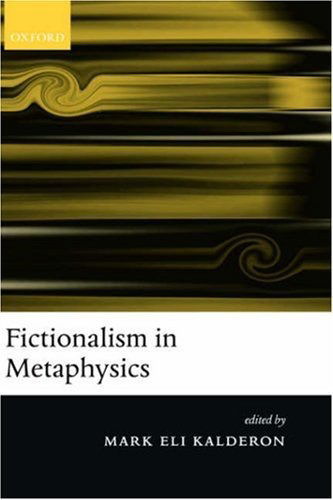
MK: In denying that acceptance is belief, fictionalism is a form of noncognitivism. Traditional noncognitivists, however, have done a poor job in distinguishing nonfactualism from noncognitivism. The technical insight of moral fictionalism, as I developed it, was that one could be a noncognitivist without accepting a controversial nonfactualist semantics. As Alisdair MacIntyre observed long ago in After Virtue, emotivists may be wrong about moral meaning but right about moral use.
In Moral Fictionalism I tried to argue for noncognitivism with the argument from intransigence. (Mark Sainsbury has a nice if critical discussion of it in his book Fiction and Fictionalism). The argument is not among the classic ten modes of skepticism (on which see Annas and Barnes, The Modes of Scepticism) though I was inspired by Pyrrhonian arguments.
Consider Hilary Putnam's admirable description of the deep political disagreement between Robert Nozick and himself:
'But what of the fundamentals on which one cannot agree? It would be dishonest to pretend that one thinks that there are no better and worse views here. I don't think that it is just a matter of taste whether one thinks that the obligation of the community to treat its members with compassion takes precedence over property rights; nor does my co-disputant. Each of us regards the other as lacking, at this level, a certain kind of sensitivity and perception. To be perfectly honest, there is in each of us something akin to contempt, not for the other's mind---for we each have the highest regard for each other's minds---nor for the other as a person---, for I have more respect for my colleague's honesty, integrity, kindness, etc., than I do for that of many people who agree with my `liberal' political views---but for a certain complex of emotions and judgments in the other.' (Putnam, Reason, Truth, and History, 165)
Putnam should be commended for his candor here. What Putnam holds in something akin to contempt is Nozick's moral sensibility, a moral sensibility that privileges property rights over what Putnam regards as the compassionate treatment of the less well off. Putnam is right at least to this extent---judgments about what justice require are unlike judgments of taste. Moral reasons are reasons for us whether or not we judge them to be reasons. So Putnam is right in emphasizing the difference. However, this makes Putnam's reaction all the more puzzling. By Putnam's own admission, Nozick is a reasonable and informed person who is interested in determining what justice requires. Moreover, Nozick takes himself to know, or at least be reasonable certain, what justice requires. Moreover, he takes himself to know, or be reasonably certain, what justice requires on the basis of reasons---indeed the reasons he developed over the course of his book, Anarchy, State, and Utopia. If Nozick's reasons are genuine, then they would undermine Putnam's own judgment about what justice requires---for unlike reasons of taste, they would apply to Putnam whether or not Putnam judges that they apply.
3:16: And is disagreement possible in this approach?
MK: Well, that's the thing. Cognitive disagreement is not possible given intransigence, or so I tried to argue. That's why the argument from instransigence is an argument for noncognitivism.
I have to confess that I now regard the book as an abject failure. I was only ever a fictionalist about being a fictionalist, something its readers failed to notice despite heavy hints. I was worried that increased intransigence of our moral disagreements would devolve into a kind of noncognitivism and that this would be a very bad thing. Now that we live in a post-truth era, I feel like Cassandra. It is very depressing.
Another way in which the book was a failure was how it blended ethical and metaethical concerns. We now live in an age of hyper-specialization with ring-fenced areas of concern. Metaethics is mostly conducted independently of first-order ethical reflection. Contrast this with the ethics of Hume or Kant. Hume and Kant address metaphysical and epistemological concerns but they do not do so independently of first-order ethical reflection. You simply could not present, say, Kant's meta-ethics (if such there be) independently of his ethics. Professional meta-ethicists were confused by the blending of normative and meta-ethical reflection in Moral Fictionalism, and I have since become a meta-ethical apostate. I don't believe that it can be meaningfully pursued independently of substantive ethical reflection. I think a better model is what Rawls describes as philosophical ethics as exemplified in the philosophies of Hume and Kant (in his Lectures on the History of Moral Philosophy). (Ronald Dworkin had similar doubts about professional hyper-specialization, see my critical review of his Justice for Hedgehogs for discussion.)
3:16: And finally for the readers here at 3:16, are there five books you can recommend that will take us further into your philosophical world?
MK:
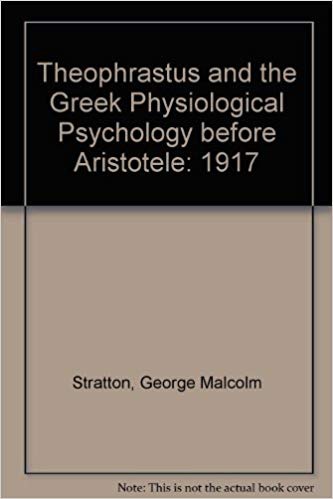
First, on the history of philosophy of perception, Theophrastus' De Sensibus translated by George Malcolm Stratton in Theophrastus and the Greek Physiological Psychology before Aristotle, The Macmillan Company, New York, 1917 (though I believe that Katerina Ierodiakonou is working on a much needed updated translation). Theophrastus was Aristotle's student and successor as scholarch of the Lyceum. In this work he is carrying on Aristotle's doxographical project and systematically examines the views of Plato and the pre-Socratics on sense and sensibilia. This is an invaluable resource for understanding philosophy of perception in antiquity.
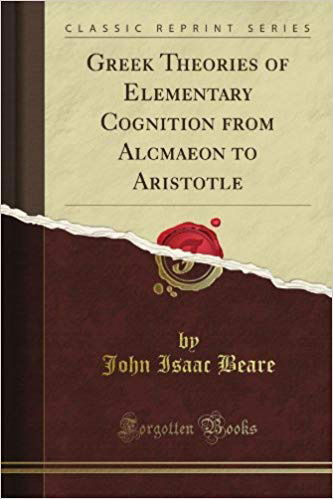
Second is a more recent history, John I. Beare, Greek Theories of Elementary Cognition, Oxford at the Clarendon Press, Oxford, 1906. There is, to date, no fully adequate history of perception in antiquity which is to say that Beare's history has yet to be superseded. Perhaps in time this will change, but until then Beare is an reasonable starting point.
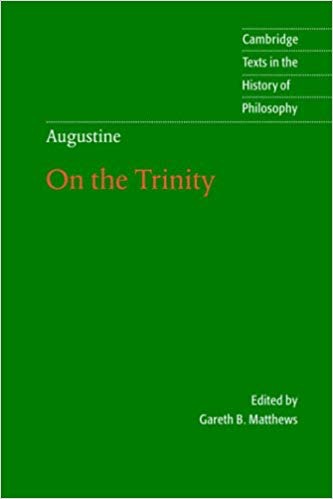
Third is Augustine, De Trinitate, the greatest work in the history of philosophy of mind that philosophers of mind never read. There is a recent translation by Gareth B. Matthews and Stephen McKenna, Augustine On the Trinity Books 8–15, Cambridge Texts in the History of Philosophy, Cambridge University Press, Cambridge, 2002.

But for a full translation there is Arthur West Haddan's translation, On the Trinity, volume 7 of The Works of Aurelius Augustine, Bishop of Hippo, T. & T. Clark, 35 George Street, Edinburgh, 1873.
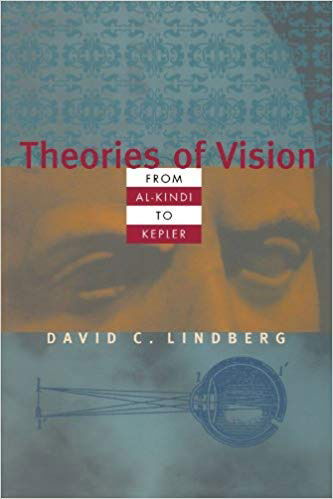
Fourth, it would be usual to recommend David C. Lindberg's Theories of Vision, From Al-Kindi to Kepler, The University of Chicago Press, Chicago and London, 1976, a remarkable work that is still worth reading.
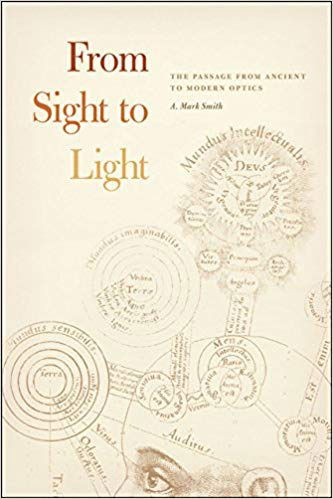
However, many historians believe that it has been superseded by A. Mark Smith's From Sight to Light, The Passage from Ancient to Modern Optics, The University of Chicago Press, Chicago and London, 2015. Both narrate the history of philosophy of perception leading up to modernity. If you are going to read one, read the Smith. But read both.
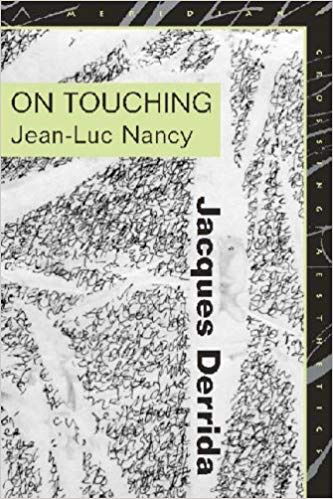
Fifth, something specifically on touch in the phenomenological tradition, Jacques Derrida's On Touching - Jean-Luc Nancy, translated by Christine Irizarry, Stanford University Press, Stanford, 2005. The book alternates between criticisms of Nancy and Derrida's notes on touch in the phenomenological tradition understood broadly to include not only phenomenologists such as Husserl but historical figures that are important to that tradition such as Maine de Biran. If reading Derrida makes you impatient, skip the chapters on Nancy and the first few pages (which reads like a surrealist prose poem, though if you read the entire book and return to it, it makes a kind of sense). Derrida's notes on touch, though, are insightful and of value even to those who belong to a different tradition.
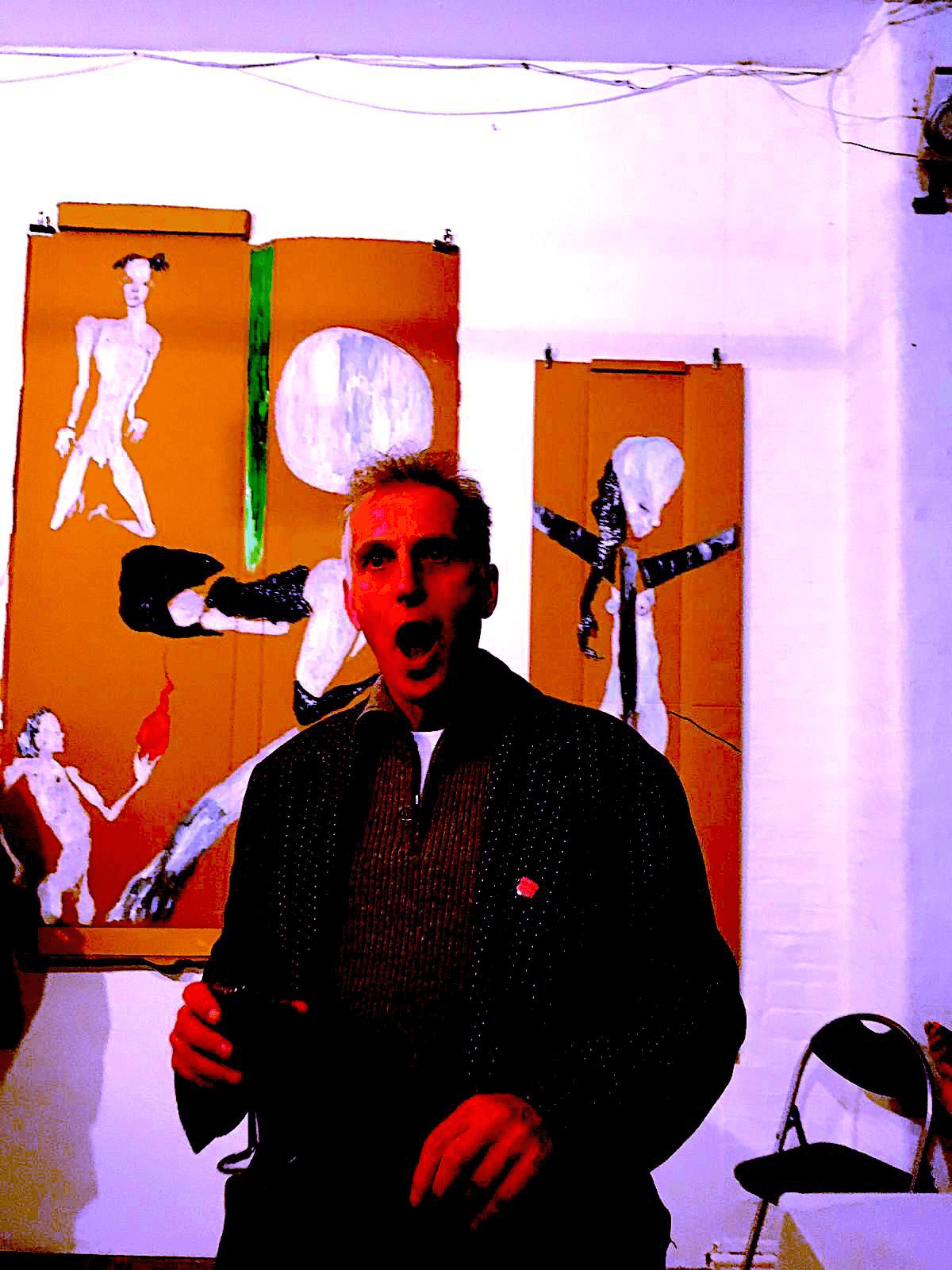
ABOUT THE INTERVIEWER
Richard Marshall is biding his time.
Buy his new book here or his first book here to keep him biding!
End Times Series: the index of interviewees